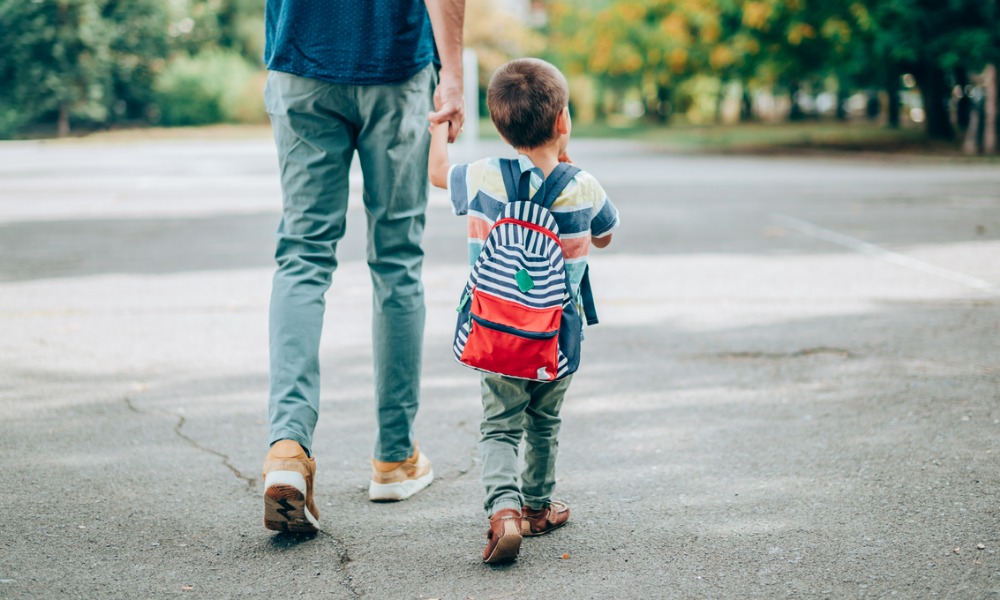

She’d been taken away from her father and brother five years ago. Her mother had abducted her from Taiwan at the age of 3 in breach of multiple court orders. I was his last hope to get her back. I was his family lawyer.
Tonight was the night this now-8-year-old girl was going to be reunited with her father and 10-year-old brother. I watched him from a distance at the airport and stood beside the CBC reporters who were eagerly waiting to record one of Canada’s most powerful reunions.
That day I had experienced an unusual surge of energy after many sleepless nights and an insatiable fatigue. Later, I was told by my doctor that the energy was my body going into survival mode and using every last bit of its reserve to push me through before giving up. I had so far lost 4.5 kilograms in a week. But I had to finish the case in two weeks and had one more week to go. The same case had taken the Taiwanese courts and lawyers five years to finish.
“How do you call yourself a woman taking away a child from her mother? The only parent she knows? You should be ashamed of yourself as woman. You family lawyers are the lowest of the low. All you care about is money and you ruin lives” was one of the hate mails I had received that day from another woman after the story was reported in the media. I wasn’t who she said I was but was I doing the right thing?
My thoughts were disrupted when I saw her walking toward her father. She had a toy in one hand and her other hand was held by a police officer. She had just said goodbye to her mother and had tears in her eyes. Her father lowered down, but he still kept a respectful distance from her to not scare her.
He softly said, “Little princess … little princess … it’s me. Do you remember me?” I looked at his face and tears were falling so hard they were hitting the floor. She did not remember him. She seemed so confused. Moments later, he asked if he could hold her hand. She paused and then gave him her hand. That moment he broke down in tears so hard that I had to leave because I couldn’t watch anymore.
I woke up the next morning feeling ill. My body was sending me an ultimatum to slow down, but the clock hadn’t stopped ticking. I had a child’s future in my hands. Slowing down was not an option. The main hearing was in six days. Normally, court cases play out much more slowly. But because of the flight risk, this one couldn’t.
For the next six days, I asked him to bring his daughter to see me every day. I told her I was a friend. I wanted to know if I was doing the right thing. During those days, I started noticing her smile and play with her brother, then smile at her father. She then started hugging both of them and telling them she loved them.
I was doing the right thing. And I was getting weaker and sicker every day.
The night before the hearing, I got home at midnight and don’t remember much except waking up in the morning with my suit and shoes still on, my body lying on top of my blanket. I sat on the bed and took off my suit jacket to breathe easier. Two Advils, a large cup of coffee and an insatiable urge to have a cigarette later, I made my way to the court. Today, nothing mattered except her.
There were media reporters outside of the courtroom. The mother had come with three powerful male lawyers, one of whom was a 34-year call. I was a 34-year-old female, a six-year call, down to 48 kg., acting like I was invincible but feeling fragile inside. I had read every single word of the Family Law Act at least 10 times and had come up with a complicated argument that I knew could only win if I made it as simple as possible. The nights before the hearing, I went to bed repeating Albert Einstein’s quote that said “everything should be made as simple as possible, but not any simpler.”
That day, I was about to make an argument that no one I knew had made before. The judge walked into the courtroom and the opposing counsel started throwing everything they could at me, but I had already thought of everything. My argument assumed what they’d say and was five sentences long. The judge asked for case authority on my argument and I told him none existed. But I asked whether anyone had anything to say against it. Then there was silence.
As a last attempt, the opposing counsel told the judge that he would appeal his decision and seek a stay immediately if it was in my favour. The judge instead took 90 minutes and came up with a judgment that pierced through every single argument they would make at appeal. After that, there was no appeal. And she was permanently reunited with her dad and brother.
“You have had post-traumatic stress,” said my doctor a week later. I knew that, but why did I feel so peaceful and joyous?
So, to answer the hate mail from that angry woman: No, I’m not ashamed of being a woman. I am not ashamed of being a family lawyer. I am not ashamed of what I did and I didn’t do it for money. It exhausted me. It literally took its pounds of flesh and made me physically ill. But I have no regrets about what I’ve been left with. I’m stronger for it. And, most importantly, I have learned to be proud of being a family lawyer, no matter what they think or say.